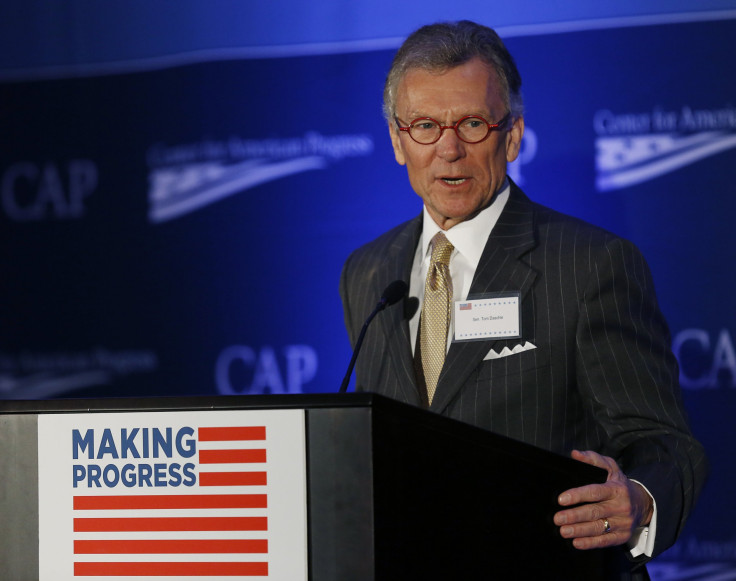Tom Daschle Pushed Hillary Clinton To Back Aetna Merger While Refusing To Register As Aetna Lobbyist

Former Democratic Senate Majority Leader Tom Daschle pushed Hillary Clinton’s top aides to consider supporting a massive health insurance merger for one of his clients — even though at the time he was not registered to be a company lobbyist.
Daschle registered to be a lobbyist for Aetna in February of 2016, which subjected him to disclosure and ethics regulations. However, an email released Thursday by Wikileaks shows Daschle pressing the company’s agenda with political power players in October 2015.
“I wanted to reach out in reference to Hillary’s statements today regarding the insurance mergers,” Daschle wrote to Clinton campaign chairman John Podesta on the day Clinton publicly raised questions about the merger. “I certainly understand her concerns over the pending deals. I’ve been working with Aetna on ACA [Affordable Care Act] involvement for the past several years. That has led to other health related matters including the merger. Their team has what they view to be compelling arguments around the benefits of the Humana merger and why it will be beneficial for consumers.”
Then Daschle said: “Would you and your team be willing to have a conversation with them?”
Clinton's campaign ultimately declared its support for a Justice Department lawsuit aimed at blocking the merger.
In 2015, a joint study by the nonpartisan Center for Responsive Politics and the Sunlight Foundation spotlighted how many former members of Congress appear to be circumventing ethics rules by working in government relations on behalf of corporate clients, but not registering as lobbyists.
Daschle has been criticized by ethics watchdog groups for going through the revolving door and working for corporate clients without registering as a lobbyist. Politico reported earlier this year that “under the statutory definition of a lobbyist, policy advisers don't have to register if they avoid direct contact with lawmakers or spend less than 20 percent of their time lobbying.” That provision, wrote Politico, “became widely known as the Daschle loophole.”
In 2009, Daschle told the New York Times: “I’m very proud of the fact that I’ve drawn a very hard line with regard to advocacy on the Hill.” He added: “I’ve not made a call nor made a visit since I left the Senate on behalf of a client. And I don’t have any expectation that I’ll do that in the future.”
Daschle's wife — a former federal aviation regulator-turned-airline lobbyist — opened her own lobbying firm in 2008.
© Copyright IBTimes 2024. All rights reserved.






















